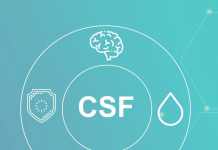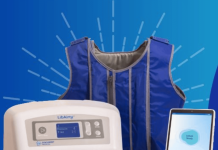Oli uses sensors and AI to identify mothers who are at high risk of developing abnormal postpartum haemorrhage.
Australian medical device maker Baymatob has closed an equity placement of A$4.215 million ($3 million), proceeds from which will be used to complete its in-human clinical trials for its AI-enabled labour monitoring device.
The placement includes cornerstone funding from the Future of Healthcare Fund of insurance firm Australian Unity.
WHAT IT’S FOR
Baymatob’s flagship device Oli uses sensors and AI to identify mothers who are at high risk of developing abnormal postpartum haemorrhage (PPH) before giving birth.
Based on current clinical evidence, Oli could be used to give clinical attention to eight in 10 mothers with PPH before their bleeding starts.
With its recent investment, Baymatob can complete its 500-patient pilot study in Australia and the US.
In August last year, Oli was given a breakthrough device designation by the US Food and Drug Administration, granting Baymatob an expedited regulatory review path.
WHY IT MATTERS
PPH or heavy bleeding after childbirth is a serious pregnancy complication that has claimed one mother every seven minutes worldwide. In the US, it is responsible for about 11% of maternal deaths each year and about a quarter of all maternal deaths globally.
Baymatob noted that there has been little advancement in maternal and fetal monitoring technologies in general with even lesser progress in successfully detecting PPH. Most maternal health devices in the market are focused on mothers’ heart rates and contractions.
“It is a sad fact that mothers today are monitored with the same measures as their grandmothers,” said founder Dr Sarah McDonald. PPH is commonly diagnosed by estimating blood loss after it occurs.
“There is clear evidence that devices used in labour monitoring are not helping us to improve outcomes for mothers and babies,” McDonald stressed.
MARKET SNAPSHOT
Investors have increasingly supported maternal healthcare platforms in recent years, helping them plug rising preventable pregnancy-related deaths.
One such platform is Cayaba Care, which received $3.2 million in seed funding last August. The startup connects community-based clinical and social partnerships with technology-enabled multidisciplinary care teams. Its aim is to offer care coordination, benefit sign-up, routine maternity care, mental health services, breastfeeding support and patient education.
Babyscripts is another platform, which scored $12 million in a Series B funding round in September. It provides remote monitoring and educational content to assist obstetricians in managing pregnancies virtually.
ON THE RECORD
“With maternity complications increasing, breakthrough technologies such as Oli have significant potential to reduce morbidity and mortality rates of women and ultimately transform the delivery of healthcare,” said Victor Windeyer, fund manager of Australian Unity’s Future of Healthcare Fund.




